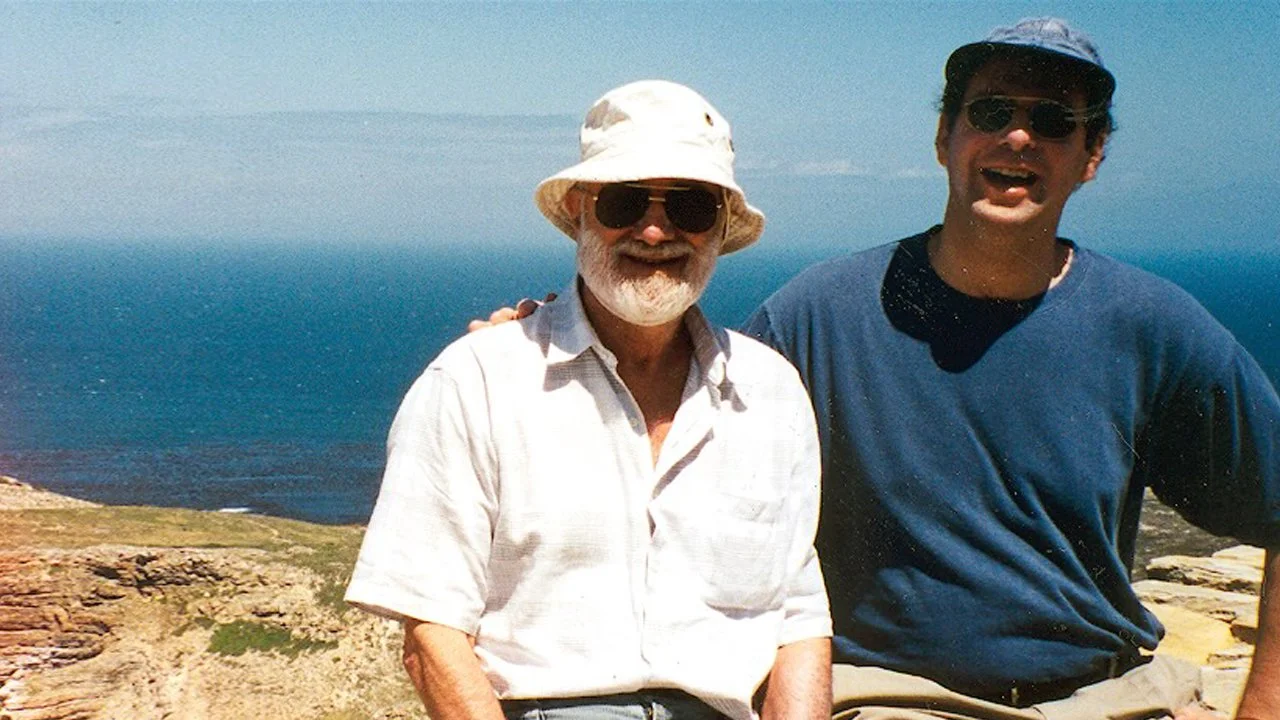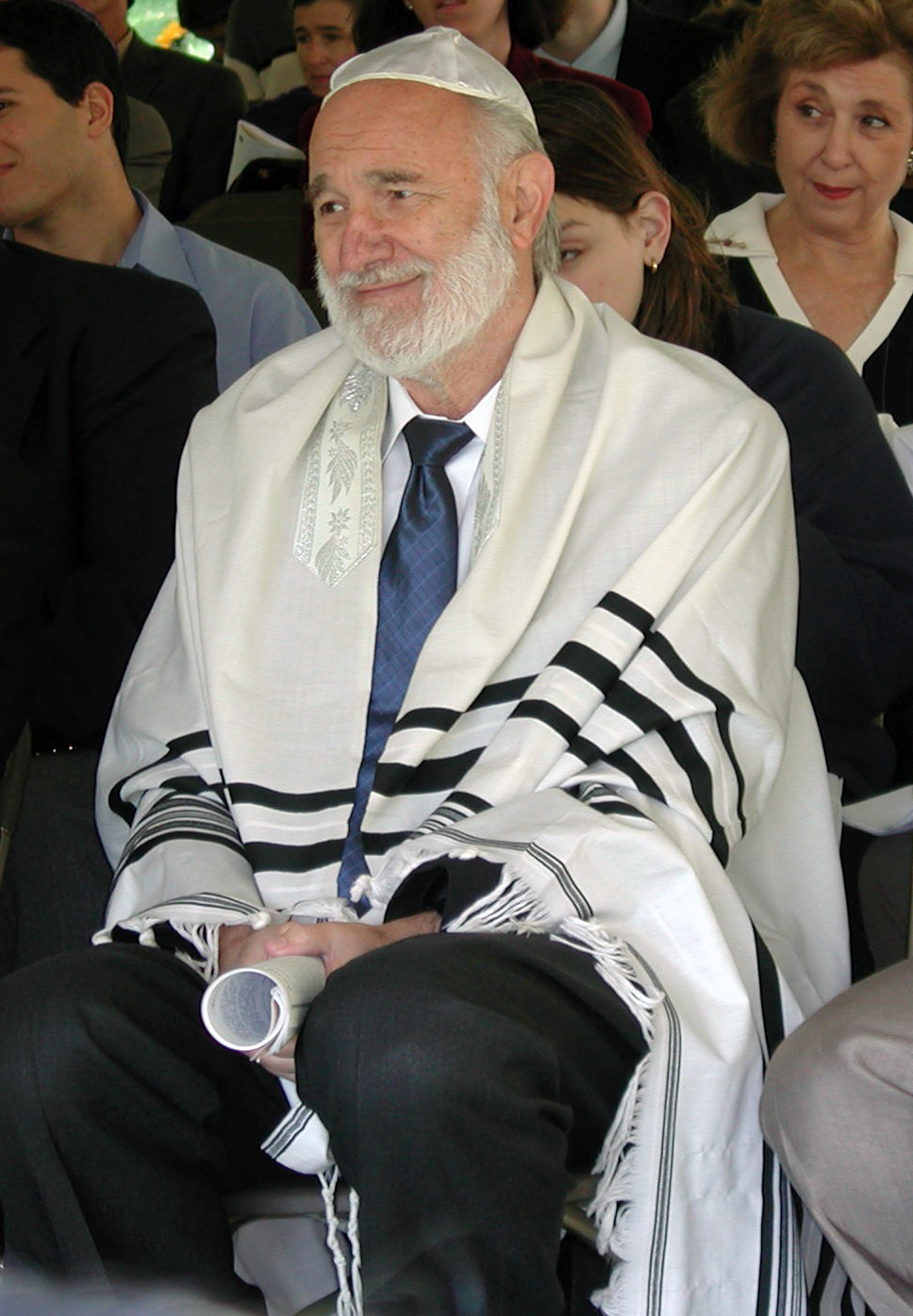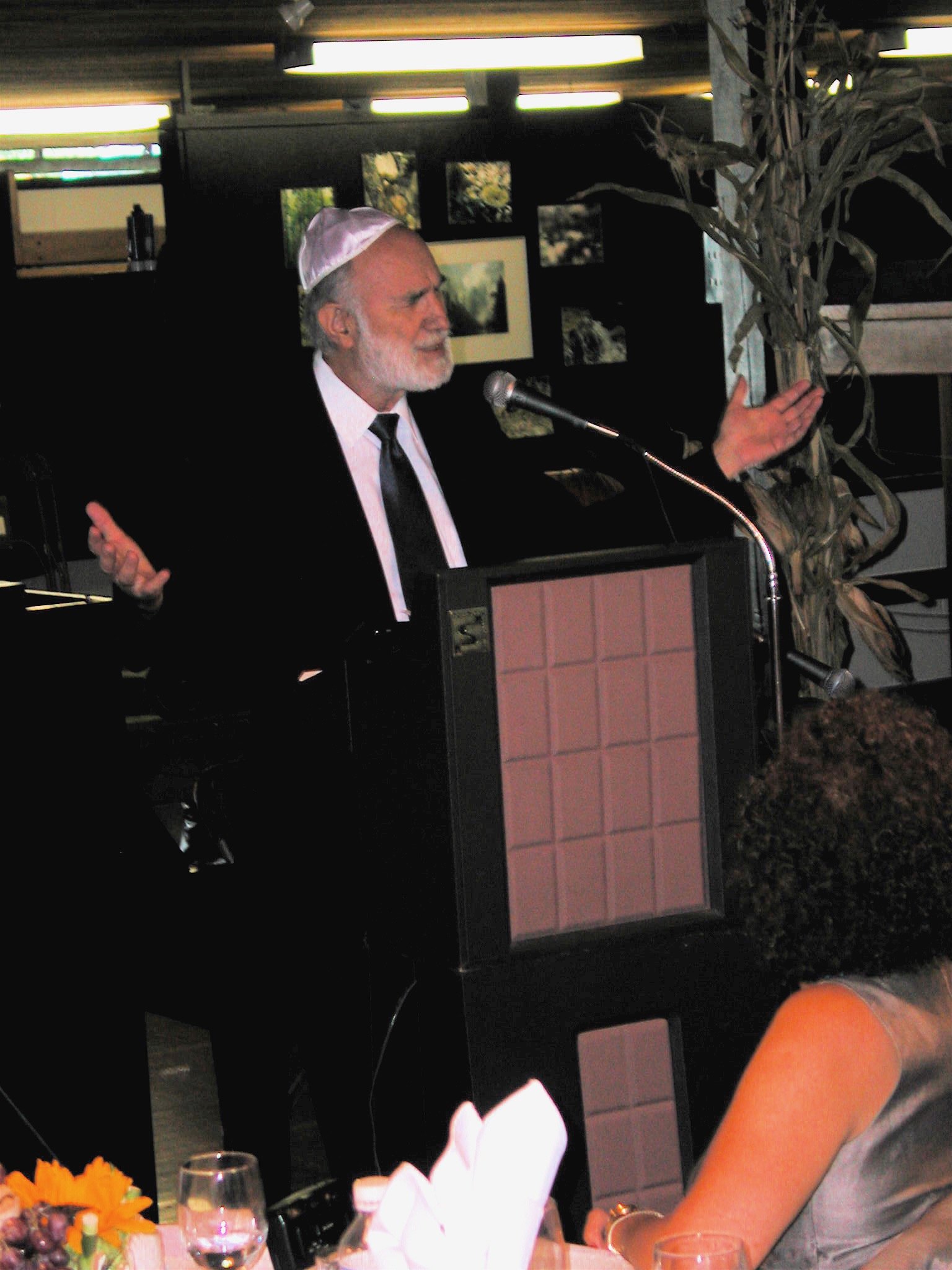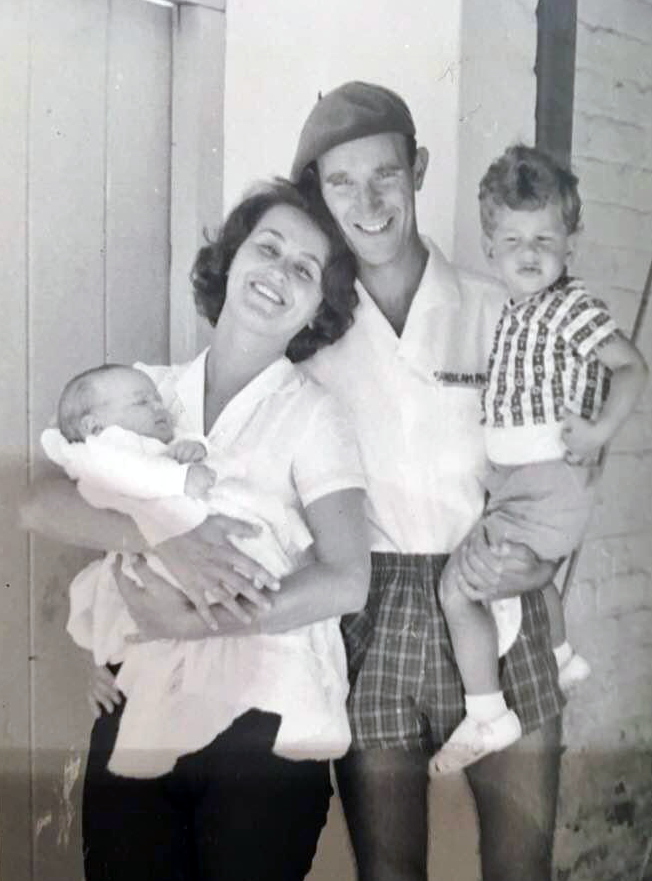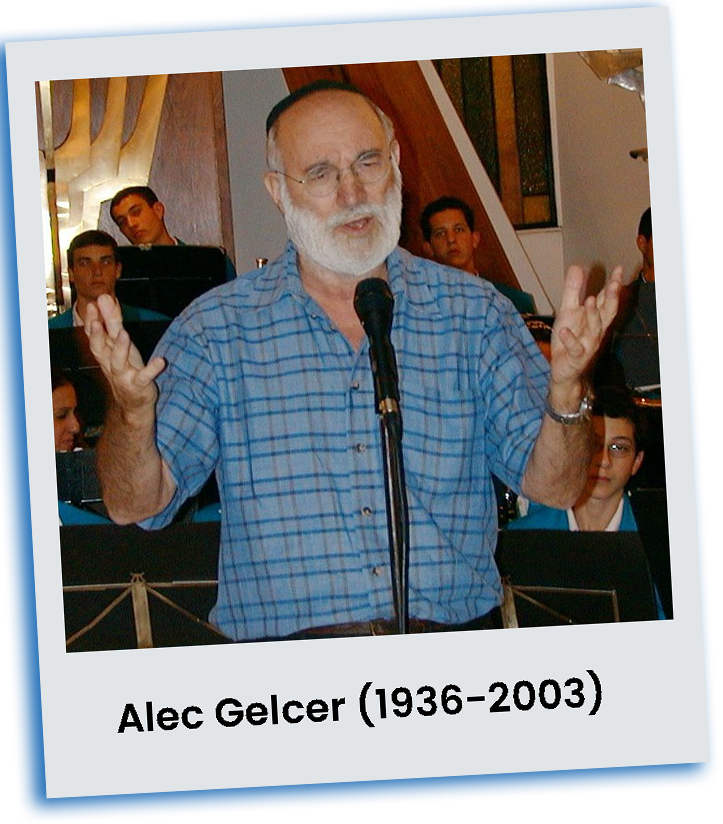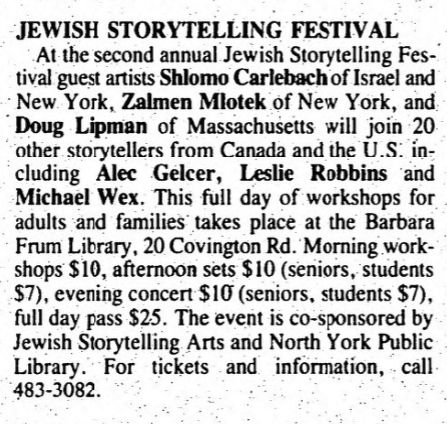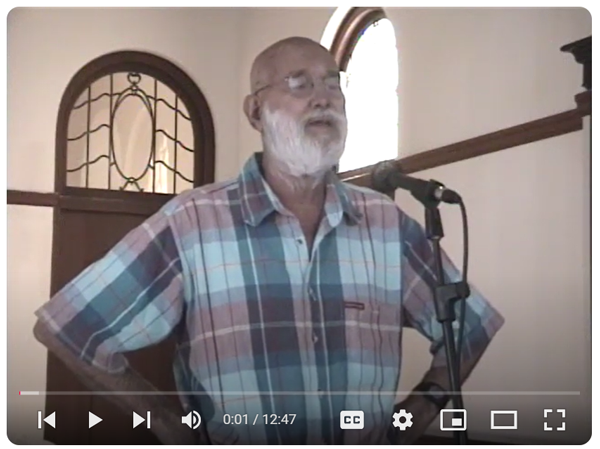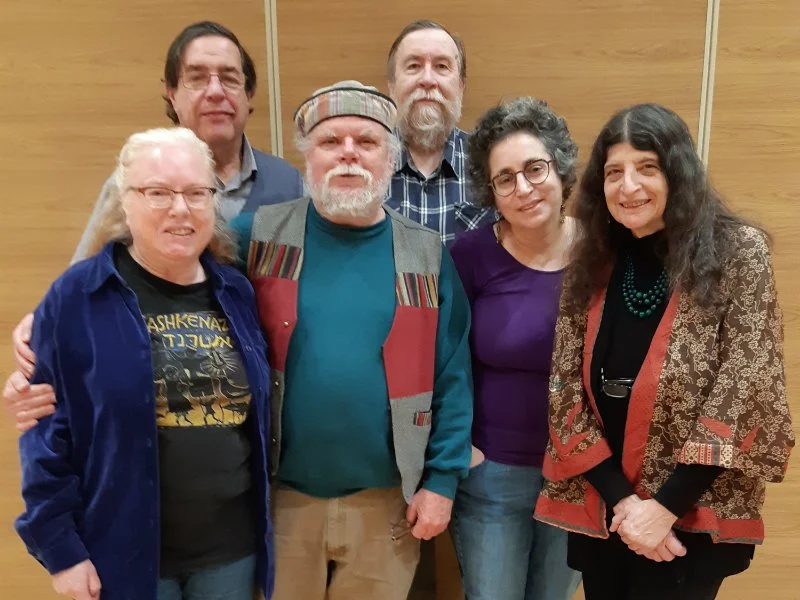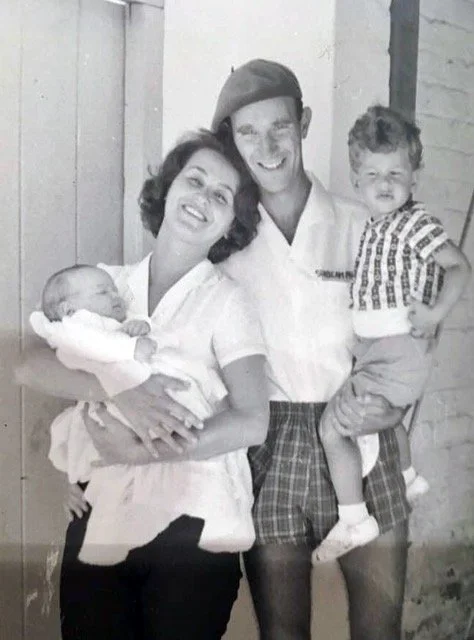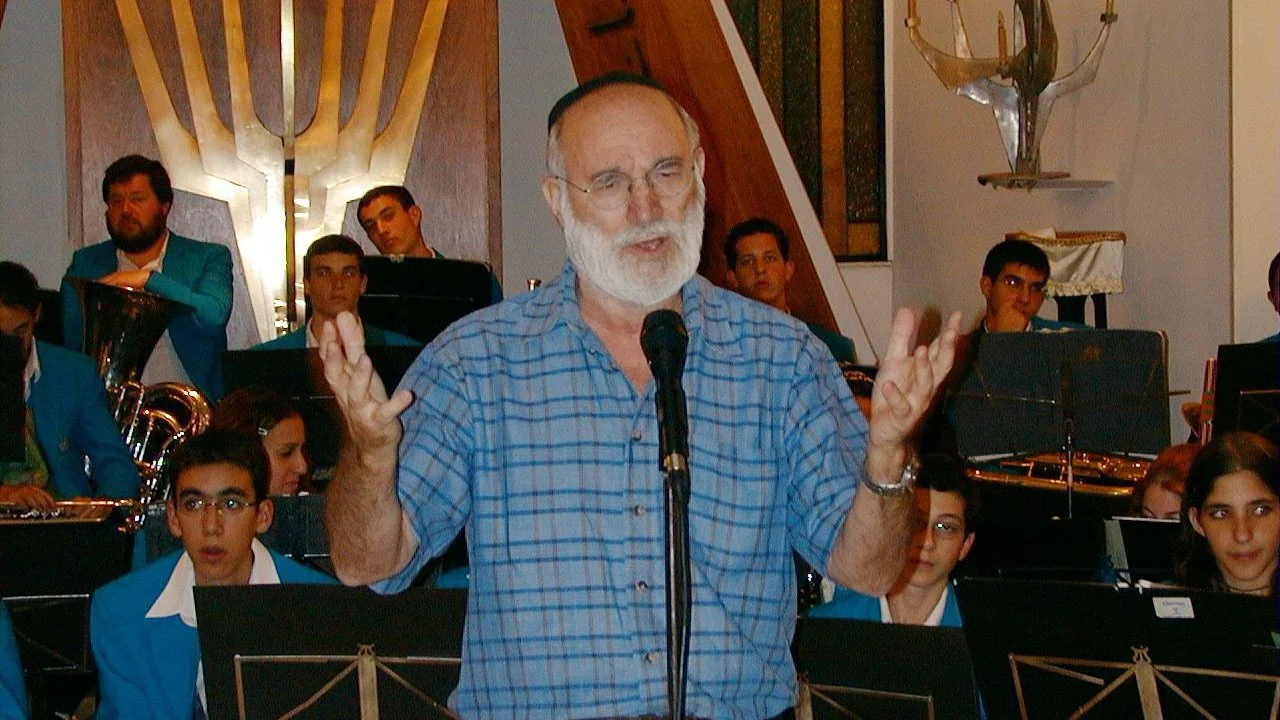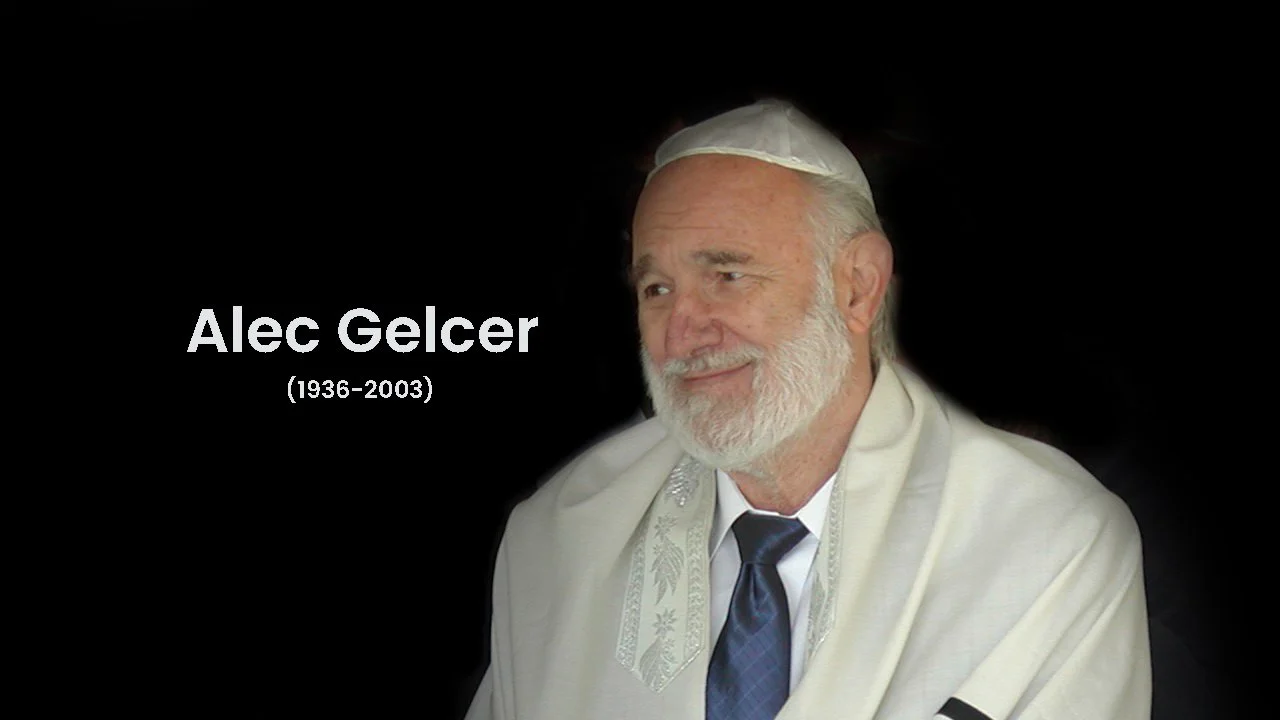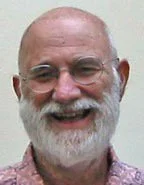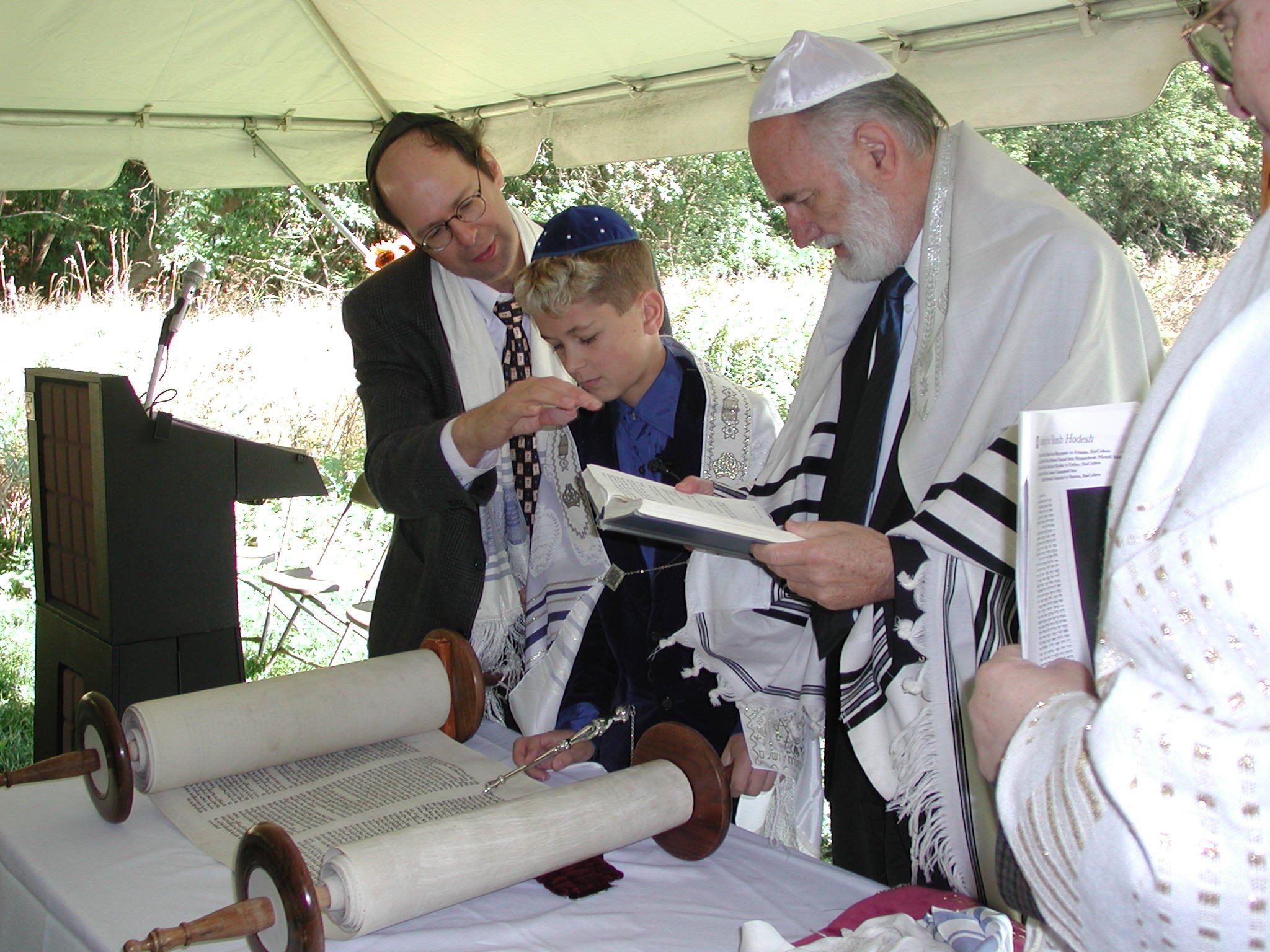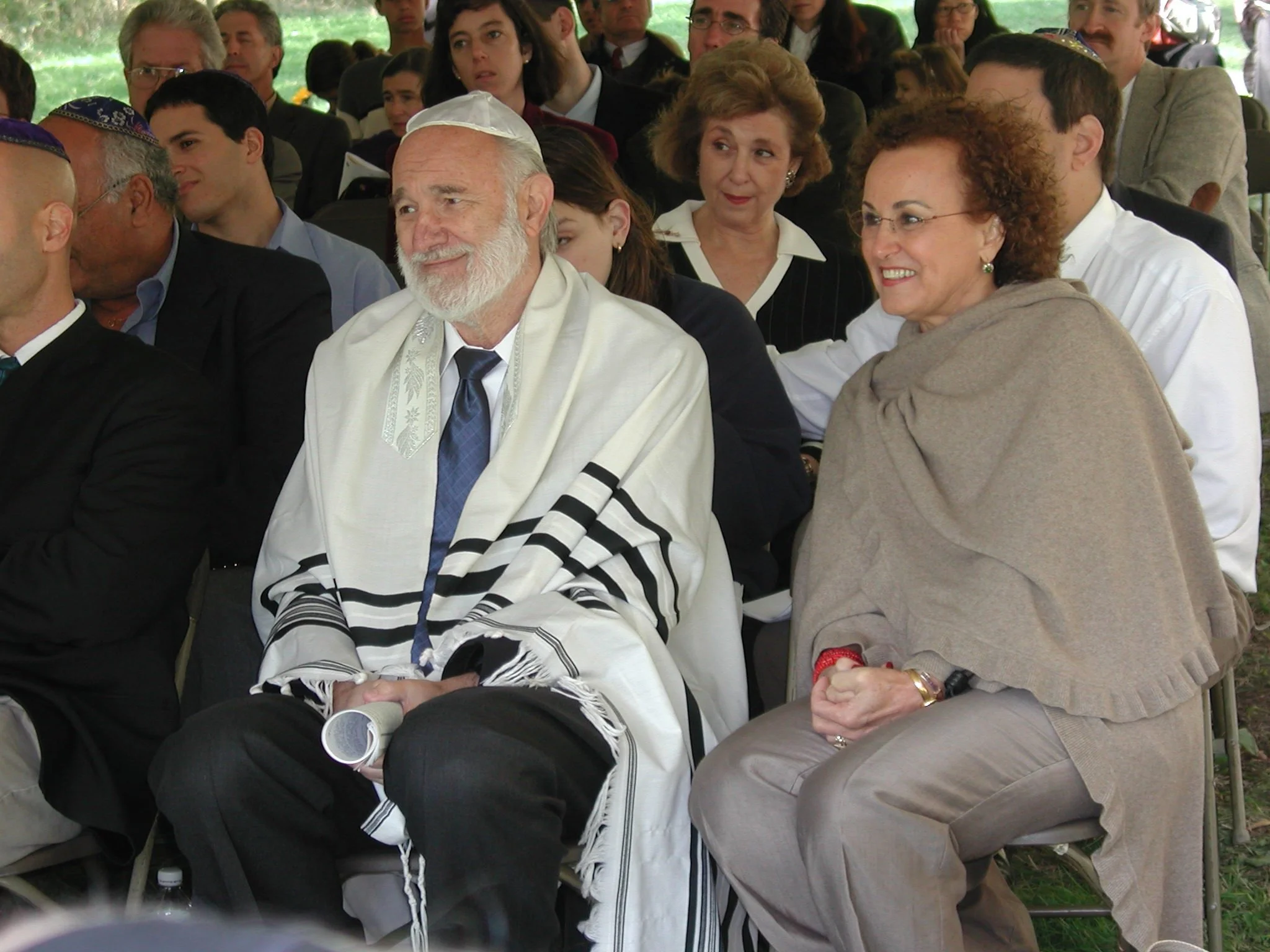Alec Gelcer
Alec Gelcer, a native of South Africa, was one of Canada’s finest storytellers. Alec was the driving force behind efforts to spread the art of Jewish storytelling in Toronto. Through his numerous appearances at storytelling venues throughout the city and his guest spots on CBC radio, Alec’s stories left an indelible mark on the hearts of many fortunate to experience his profound gift.
Written by Eli Rubenstein
(1936-2003)
If we are lucky enough, many of us come across one remarkable person in our lives who is of such positive influence on us – and their light abides as a gift until the end of our days. One of those people was Alec Gelcer, of blessed memory.
I remember encountering Alec at one of his many storytelling gatherings in the early 1990s. Alec’s sentences—spoken with his soft voice and distinct Cape Town accent—were like TRUTH, flashing in front of me in capital letters, like neon lights.
One didn't need philosophical arguments, theological discussions, or rational talking points. Alec was able to persuade his audience through his simple, beautiful, tiny gems of stories, shining and beautiful pebbles of wisdom he shaped and polished week after week.
It was 1988, and I was beginning my vocation as a Holocaust educator and religious leader of a congregation in Toronto. I was often called upon to speak, and often, I felt my audience slipping away.
After my encounter with Alec, I started weaving more and more stories into my presentations.
I quickly realized this. As soon as my remarks ventured into the storytelling realm, there was a visible shift in the audience’s attention. You could see them moving forward in their seats, straining their ears, and listening intently.
Why? Because all our lives are made up of stories, interconnected moments, moments of challenge and change, love and pain, joy and defeat, understanding and misunderstandings, and moments of being judged or judging others unfairly.
We see each other and ourselves in these stories, and we cannot help but be captured by their immediacy and familiarity. In each story, we identify with the characters—whether they be the victim, hero, perpetrator, or bystander. We have all been there—one of them. And when we hear the stories, we wonder, “What would I have done in that situation? In fact, what did I do in that very same situation?”
Alec and Esther in Cape Town in 1964, with their two children
Jim and Alon
“Because all our lives are made up of stories, interconnected moments, moments of challenge and change, love and pain, joy and defeat, understanding and misunderstandings, and moments of being judged or judging others unfairly.”
So, we crook our heads forward to gain closer attention—because these are not stories about others; these are the stories of our own lives.
As I mentioned in my eulogy for him, I would often call Alec with a new story I had composed or come across. I would wait to hear Alec¹s response. And, sometimes, after a long and thoughtful pause, I would listen to the words I was waiting for. “Eli,” Alec would say, his voice earnest and full of gravity, “that is an important story. It must be told.”
So, thank you, Alec, for opening the world of storytelling to me so many other people and being one of our life's most important stories.
A Personal Note About Alec Gelcer
Alec Gelcer Articles
Read Canadian Jewish News article By Jack Kohane (Toronto) from November 5, 1992 (page 33)
Read “Gelcer remembered as a master Storyteller.” CJN August 7, 2003
Tales for an Unknown City
Collected by Dan Yashinsky. Published in 1990
A selection of almost fifty stories from among the many told at One Thousand and One Friday Nights of storytelling, with one story by Alec Grelcer (pg.83).
Click below to read or download “The Gold Mine” below.
Alec Gelcer Stories
This is a rare collection of one of Canada’s finest storytellers, part of a compilation of stories recorded with CBC and Toronto's Jewish Storytelling Festival.
An original advert in the Canadian Jewish News section, “What’s Happening,” a weekly page featuring events around the Toronto Area.
Alec Gelcer’s YouTube Page
CLick the picture or the link below for a fantastic YouTube playlist with 33 stories told by the late Alec Gelcer. https://t.ly/HoRvn
An Evening of
Storytelling
[From the CJN article dated February 13, 2020. Written by Ruth Schweitzer]
Congregation Habonim Toronto hosted the Toronto Jewish Storytelling Guild [seen in the photo above]. In the CJN article, some storytellers credited Alec Gelcer for either hearing and learning specific stories or being the founder of the congregation’s original storytelling group.
“Eli Rubenstein recounted an anecdote told by the writer and Holocaust survivor Primo Levi about the psychological torture prisoners endured at Auschwitz. Levi once reached for an icicle because his throat was dry. A Nazi guard stopped him, saying, “No, it’s not allowed.” Levi said, “But why?” The guard replied, “You’re in Auschwitz, and in Auschwitz, there is no why.”
“Rubenstein said the story symbolizes what Auschwitz was. “It wasn’t just a place of physical torture. It was a place of incredible emotional and psychological torture. They weren’t just there to destroy them physically; they were out to crush their souls. Any place you can’t ask why is a place you shouldn’t be,” he said.”
A gathering of the Toronto Jewish Storytelling Guild: Briane Nasimok, Meryl Arbing, Judith Cohen, Eden Nameri, Norm Perrin, and Jane EnkinEli Often Credits
Alec Gelcer’s Influence in His Life in Sermons and Articles
[More from CJN article: “Rubenstein said [Alec] Gelcer was the heart and soul of the storytelling program at the synagogue. After he died in 2003, Habonim held an annual storytelling festival in his honour for 10 years, but “once he passed away, we lost the core, lost the centre,” Rubinstein said.
Under Gelcer’s influence, he introduced stories into his sermons. He noticed that sermons on theology sometimes had his congregation squirming in their seats. “But as soon as I launched into a story, people were sitting on the edge of their seats,” Rubenstein said.”
Alec Gelcer with his wife Esther, Alon and son, Jim
Alec Gelcer at a service- most pictures are from his grandson Jacob’s Bar Mitzvah in the early 2000's
Alec Gelcer at the podium telling one of his many stories - At his grandson Jacob's Bar Mitzvah.
Alec Gelcer and Eli Rubenstein
Alec Gelcer at Congregation Habonim
Alec Gelcer at Congregation Habonim
This image was made using a picture of Alec Gelcer from his grandson Jacob’s Bar Mitzvah in the early 2000's
Alec Grelcer
Alec Gelcer at a service- most pictures are from his grandson Jacob’s Bar Mitzvah in the early 2000's
Alec Gelcer at a service- most pictures are from his grandsons Jacob’s Bar Mitzvah in the early 2000's

